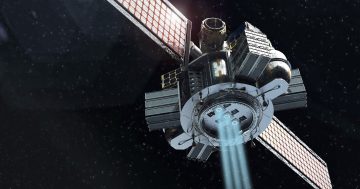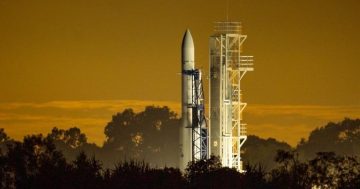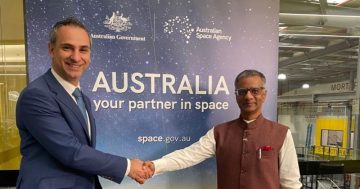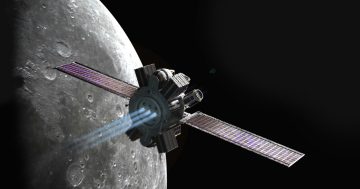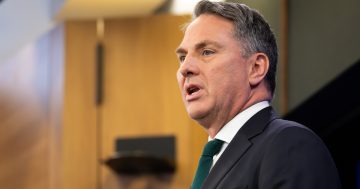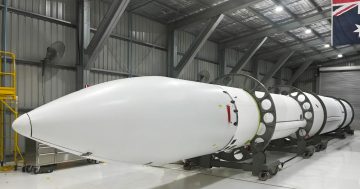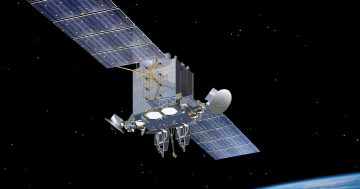Svetla Ben-Itzhak* says while the International Space Station has long been a symbol of global cooperation, Russia’s departure signals a new era of international dynamics in space.
 In July this year Russia announced it would leave the International Space Station (ISS) in 2024.
In July this year Russia announced it would leave the International Space Station (ISS) in 2024.
It was not a surprise: In 2015, Russia said it intended to depart the ISS within 10 years.
A symbol of post-Cold War reconciliation, the station has linked Washington and Moscow even when relations between the two nations frayed.
It became a bedrock of international cooperation, welcoming 251 astronauts and space tourists from 20 different countries over its 24 years in orbit.
Does Russia’s departure mean an end to international space cooperation?
I argue that, rather than an end, Russia’s actions point to shifting space power configurations that mark a new era for international dynamics in space.
As Russia has contributed financially and operationally to the ISS, both areas must be addressed to secure continuous ISS functioning.
The ISS is the most expensive object in orbit ever constructed.
The ISS cost more than $US150 billion ($A215 billion) to develop and build, with the United States covering most of that bill with Russia, Europe, Japan and Canada contributing.
Given that NASA also pays for most of the ISS running costs, it should not be too difficult to cover Russia’s financial portion.
Operationally, things are a little more complicated. The ISS is a modular space station that consists of 17 distinct pressurised modules — six Russian, eight US, two Japanese and one European.
The Russian Orbital Segment handles guidance, navigation, and propulsion for the entire station.
When it departs, Russia will detach its modules, which means the ISS will lose its propulsion and manoeuvrability capabilities.
To keep the space station in orbit until its definitive demise in 2031, the 14 remaining ISS State participants — the US, Canada, Japan, and 11 European countries — have three main options.
First, they could replace some of the Russian modules. This very costly enterprise may not be warranted as the ISS is expected to stay in orbit for only seven more years after Russia’s departure.
Second, some remaining modules could be repurposed to fulfil the needed functions. While possible, this could be potentially very complex and expensive.
Finally, ISS participants could work with commercial companies to equip the space station with propulsion and manoeuvrability capabilities.
SpaceX has already offered to help and NASA is working with several companies to develop future stations and commercial destinations in space.
The third option, while also costly, is most likely, as commercial space services could help the ISS reach a dignified end and be reused in future space missions.
Russia’s departure from the ISS signals that the nature of international cooperation in space is changing.
This metamorphosis is marked by two main developments: The proliferation of space actors and the formation of ‘space blocs’.
First, more and more countries and companies are participating in space travel and exploration.
In the past, space was the exclusive prerogative of a small number of States.
Today, 75 countries have established official Space Agencies, a dozen more operate satellites in various orbits, and a growing number of commercial actors participate in various aspects of space travel and exploration.
This proliferation of State and non-State actors in space means that the number of potential partners for space travel and exploration has significantly expanded.
The increased number of commercial space companies means that space has become more accessible in terms of cost, opportunities, and services.
Second, despite the proliferation of commercial space actors, States continue to define the rules in space.
This is evidenced in international space law that gives States full responsibility, liability, and ownership of any commercial entity and object in space.
States, however, no longer operate exclusively solo in space, but tend to come together and form what I call ‘space blocs’.
The European Space Agency (ESA), established in 1975, could be considered one of the earliest space blocs.
Newly formed space blocs include the Asia-Pacific Space Cooperation Organisation in 2005 (eight States led by China), the Arab Space Coordination Group in 2019 (11 Middle Eastern States led by the UAE) and the Latin American Caribbean Space Agency in 2021 (seven Latin American States led by Argentina).
Space blocs pursue various missions ranging from using space capabilities to exert influence on the ground, to planning off-world human-manned outposts on the Moon and beyond.
Partly in response to sanctions, Russia has recently moved to collaborate more closely with China on several space projects.
A series of events led to such a shift. Western countries discontinued several space projects with Russia in response to its invasion of Ukraine.
Russia and Germany stopped cooperating on the joint ISS scientific Icarus project, and the ESA terminated the joint ESA-Russia rover ExoMars mission that was supposed to launch at the end of September.
For its part, Russia withdrew all its scientists from the French equatorial spaceport in Guiana.
Russia aims for larger cooperative space ventures with China that include the construction of a human-crewed lunar research station on the Moon’s South Pole.
Its announcement that it would leave the ISS reflects a global shift in power dynamics in space.
The new power distribution in space is being defined by two key developments: The proliferation of space actors and an increased formation of space blocs through which like-minded States pursue specific space missions.
Both have led to unprecedented growth of space activities.
More space stations are to be built, several missions to the Moon and Mars are being planned, and techniques for extracting celestial resources are being developed.
So long as space bloc formations remain flexible and open to all, cooperation in space will flourish, and humanity can remain optimistic about the incredible opportunities this new era of space exploration brings.
*Svetla Ben-Itzhak is an Assistant Professor of Space Seminar and International Security at Air University. Her views are her own.
This article first appeared on the Australian Institute of International Affairs’ Weekly Outlook page.



